
 Flash News
Flash News
Inceneratori jashtë funksionit, përfshihet nga flakët fusha e mbetjeve në Elbasan
Accident on the Lezhë-Shëngjin axis, one injured
"Arsonist" arrested for repeatedly setting fires in Vlora (NAME)
Three cars collide in Tirana, one of them catches fire
He abused his minor daughter, this is a 36-year-old man in custody in Fier
Lëpusha beyond Rama's postcards: A village that is being silently abandoned

Prime Minister Edi Rama has a habit of posting two or three times a year about Lëpusha, the village in the Alps at the northernmost tip of Albania. “Lëpusha like a heart,” Rama wrote in January of this year on Facebook, at the top of a post with photos of children playing in the snow.
The carefully selected postcard views present an idyllic atmosphere. But beyond them, Lëpusha, like many similar villages across the country, is being abandoned every year.
Despite the growing number of tourists, the number of residents choosing to live in Lëpushë is ever smaller. Meanwhile, those who remain there face systemic problems that have been unresolved for decades.
“There are 500 problems here, there is no electricity, there is no stable water, people have fled en masse,” says Tonin Shkoza, 55. “There are no roads, no health center, there is nothing,” he adds.
The turnout in the last three elections shows how the village is gradually being abandoned. In 2021, 141 people voted in Lëpushë, in 2023 122 voted, and in the elections in May of this year there were only 100 voters. Even more telling is the lack of children in school.
"A 9-year school operates in the village of Lepushë, in which 1 student is currently enrolled," the municipality of Malesia e Madhe told BIRN in a written response.
Residents say that while tourists are on the rise, infrastructure is neglected, health services are lacking, and the isolation in winter leaves them hopeless.
Without students and doctors
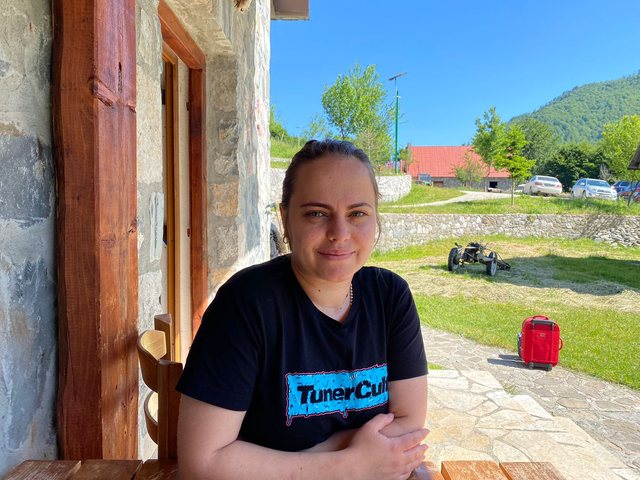
Xhemina Torozi, the nurse who covers three villages in the area alone. Photo: Françeska Ndoja.
Suela, 10 years old, is the only student left at the 9-year-old school in Lëpusha. She lives in a world that she doesn't share with anyone else her age and is alone in class every day. The girl says she has three hours of lessons every day, without any friends.
He walks to school, and in winter, this is very difficult.
"There's knee-deep snow, I'm two hours late just getting there and back," says the student, who dreams of becoming a doctor to help the residents of the area.
In fact, the village has no doctor.
The only doctor is in Tamara, about 24 kilometers away or about 36 minutes by car if the road is free of snow or rock blockages that were present when we visited the area.
Xhemina Torozi, the only nurse covering three areas, Lepusha, Budac and Gropat e Selcës, says she faces challenges alone that go beyond her duties. Torozi says she mostly provides home care and, in the absence of an ambulance, transports emergencies in her car.
"The health center is functioning, but without conditions: there is no electricity and no water. I have very limited equipment. In emergencies, I pick up patients in my car and take them to Tamara because we don't have an ambulance," she says.
Infermierja thotë se në zonë mungojnë edhe medikamentet thelbësore për ndërhyrje urgjente. “Mungojnë ilaçet bazë: antibiotikë, shurupe, gjilpëra kundër helmimit. I blejnë turistët ose unë vetë që t’i kem në gatishmëri”, thotë ajo.
Torozi thotë se shumica e banorëve të mbetur në zonë janë mbi 60-vjeç dhe kanë probleme me tensionin dhe zemrën. Kjo e komplikon punën e saj.
Sfidat e turizmit
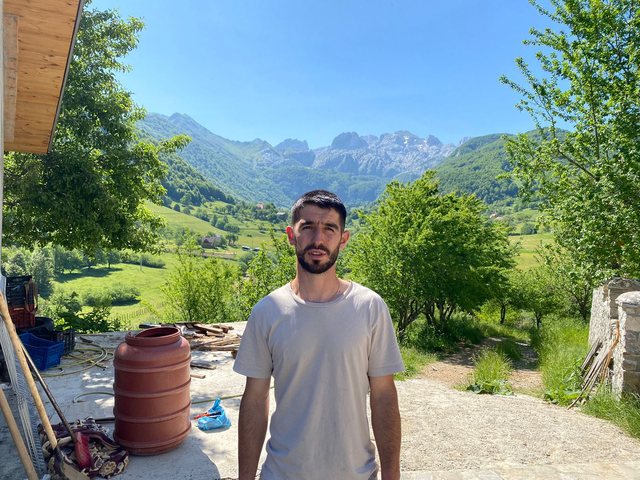
Leonard Çekaj, pronar i një bujtine në Lëpushë. Foto: Françeska Ndoja.
Ndryshe nga banorët e zonës, bashkia e Malësisë së Madhe pretendon se njerëzit nuk po largohen, por po rikthehen në Lëpushë. Bashkia lavdëron për këtë të ashtuquajturën “Paketa e maleve”, një iniciativë të diskutueshme që u bë ligj vetëm në fillim të majit.
“Kjo lëvizje është frymëzuar kryesisht nga “paketa e maleve” , iniciativë zhvillimore që stimulon banorët të rikthehen në zonë përmes përfitimeve ekonomike”, tha Bashkia e Malësisë së Madhe në një përgjigje me shkrim.
Siç e ka prezantuar qeveria, paketa synon të stimulojë rikthimin e banorëve për të investuar në tokat e të parëve edhe nëse nuk kanë dokumente pronësie, por janë vetëm posedues të saj.
Megjithatë, banorët e Lëpushës thonë se premtimet nga Tirana nuk mbajnë shumë ujë.
Numri i turistëve në rritje dhe biznesi i bujtinave që mban në këmbë ekonominë e vogël të Lëpushës nuk ngjall optimizëm. Bujtinat e ngritura vite më parë, nëntë të tilla ndodhen në Lëpushë, tani kanë vështirësi të gjejnë punonjës.
“Në 12-13 vitet e fundit fshati është zbrazur, sepse nuk ka perspektivë, nuk ka mbështetje”, thotë Leonard Çekaj, 28-vjeç, i cili është një nga të paktët të rinj që jeton me agroturizmin në zonë. Çekaj thotë se prindërit dhe vëllezërit e të tjerë që ndihmonin në biznesin familjar, prej kohësh janë larguar për në Amerikë.
Për paradoks, bujtina e Çekajt ka punësuar këtë sezon një çift nga Argjentina, i cili punojnë 3-5 orë në ditë për të pasur një dhomë, ushqim mes Alpeve dhe kohë për të shëtitur zonën.
“Punojmë 3 deri në 5 orë në ditë,” thotë Aylen Zamora, e cila po qëndron në Lëpushë me bashkëshortin. “Pastrojmë dhomat e turistëve, ndihmojmë në kuzhinë. Por nuk lodhemi përkundrazi, kënaqemi. Pjesën tjetër të ditës e kalojmë duke shëtitur dhe eksploruar këtë vend të bukur”, thotë ajo.
Por çifti është këtu vetëm përkohësisht dhe gjasat që punonjës të tillë të gjenden janë rastësore.
Tonin Shkoza ankohet se shteti nuk i lejon të ndërtojnë dhe të zhvillohen.
“Ne paguajmë taksa, por nuk na japin mundësinë të zhvillohemi. Ose të na lejojnë të ndërtojmë siç duhet, ose të vijnë e të na mbyllin gjithçka. Sepse na mbyten në gjoba. Mos të na mbajnë në këtë mes, as andej, as këtej”, thotë ai.
Edhe Çekaj thotë se ndërsa pronësia mes banorëve është e zgjidhur, prona atyre nuk u njihet dhe ndërtimet janë ende të palegalizuara.
“Unë jam interesuar shumë, por përgjigjja që kam marr është që t’i nuk ke pronësi toke. Kjo na penalizon shumë që nuk kemi pronësinë e vendit tonë,” thotë i riu.
He explains that even though it has been promised to them for years, neither legalization nor efforts have been made to recognize the land as their property. "We don't have a problem with the land, because the land is ours and we have no conflicts with other residents, we want it to be recognized so that we can develop the area. This penalizes us a lot," he says.
And yet, Çekaj insists he will stay.
"I don't want to leave. I've worked to keep this place moving, with people," he concludes./BIRN
Latest news




Milan are expected to give up on the transfer of Granit Xhaka
2025-07-01 19:41:25

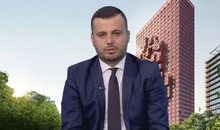
The silent but rapid fading of the towers' euphoria
2025-07-01 18:58:07
Donald Trump's daughter says 'goodbye' to June with photos from Vlora
2025-07-01 18:48:47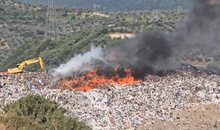

Tirana vote recount, Alimehmeti: CEC defended manipulation
2025-07-01 18:15:05

Left Flamurtari, striker signs with another Albanian club
2025-07-01 17:43:14
Accident on the Lezhë-Shëngjin axis, one injured
2025-07-01 17:19:35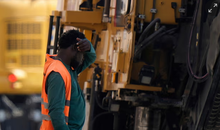
June temperature records, Italy limits outdoor work
2025-07-01 17:03:15

Meet Kozeta Miliku, named one of the top five scientists in Canada
2025-07-01 16:32:12
"Arsonist" arrested for repeatedly setting fires in Vlora (NAME)
2025-07-01 16:29:45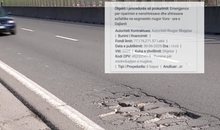
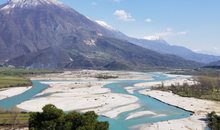
The ecological integrity of the Vjosa River risks remaining on paper
2025-07-01 16:09:40
Heat Headache/ Causes, Symptoms and Measures You Should Take
2025-07-01 16:01:13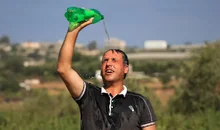
UN: The world must learn to live with heat waves
2025-07-01 15:54:50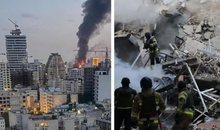

Three cars collide in Tirana, one of them catches fire
2025-07-01 15:38:16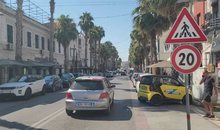

Shehu: Whoever doesn't want Berisha, doesn't want the opposition 'war'!
2025-07-01 15:19:20
Berisha requests the OSCE Assembly: Help my nation vote freely
2025-07-01 15:11:46
Be careful with medications: Some of them can harm your sex life
2025-07-01 15:00:32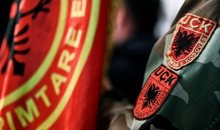
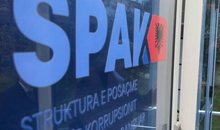
'Golden Bullet'/ Lawyers leave the courtroom, Altin Ndoc's trial postponed again
2025-07-01 14:44:52
EU changes leadership, Kosovo in a number of places
2025-07-01 14:40:01
Should we drink a lot of water? Experts are surprised: You risk hyponatremia
2025-07-01 14:30:20
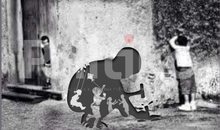
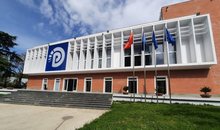
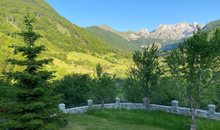
Lëpusha beyond Rama's postcards: A village that is being silently abandoned
2025-07-01 13:41:56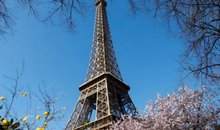
Scorching temperatures in France close the Eiffel Tower
2025-07-01 13:29:35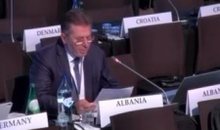
Media: China, Iran and North Korea, a threat to European security
2025-07-01 13:20:12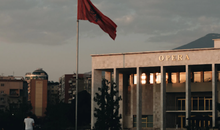
Albania drops in global index: Less calm, more insecure
2025-07-01 13:09:35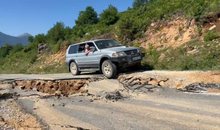
Road collapses, 5 villages in Martanesh risk being isolated
2025-07-01 13:03:04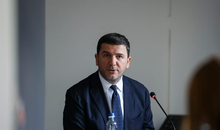

Këlliçi: Opposition action to be decided in September
2025-07-01 12:48:49
Four tips for coping with the heat wave
2025-07-01 12:38:53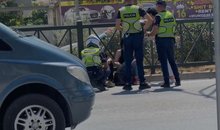
Car hits pedestrian on Transbalkan road
2025-07-01 12:27:09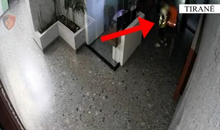
Authors of 9 robberies, Erjon Sopoti and Abdullah Zyberi arrested
2025-07-01 12:15:56

He abused his minor daughter, this is a 36-year-old man in custody in Fier
2025-07-01 11:50:34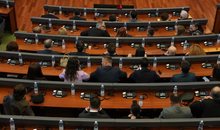
The constitution of the Kosovo Assembly fails for the 40th time
2025-07-01 11:40:08

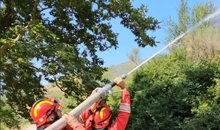


EU confirms support for the Western Balkans
2025-07-01 10:50:45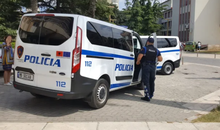
Serious in Fier! Father sexually abuses his minor daughter
2025-07-01 10:32:33
One year since the passing of the colossus of Albanian literature, Ismail Kadare
2025-07-01 10:25:26


They supplied the 'spaçators' with drugs, two young men are arrested in Tirana
2025-07-01 09:54:09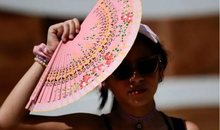
Europe is "scorching", how dangerous are high temperatures?
2025-07-01 09:48:56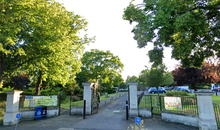


Nigel Farage in Albania: but why?
2025-07-01 09:13:12
Xama: The "Partizani" dossier is quite weak and without facts!
2025-07-01 09:04:47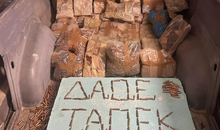

Foreign exchange, the rate at which foreign currencies are sold and bought
2025-07-01 08:35:39
Fabricators again warn of factory closures and job cuts
2025-07-01 08:21:30
Horoscope, what do the stars have in store for you today?
2025-07-01 08:08:59
Scorching hot, temperatures reaching 40°C
2025-07-01 07:57:12
Morning Post/ In 2 lines: What mattered yesterday in Albania
2025-07-01 07:42:59
Recount after May 11, Braho: I had no expectations for massive vote trafficking
2025-06-30 22:54:18

Second hearing on the protected areas law, Zhupa: Unconstitutional and dangerous
2025-06-30 22:18:46



Israel-Iran conflict, Bushati: Albanians should be concerned
2025-06-30 21:32:42

Fuga: Journalism in Albania today in severe crisis
2025-06-30 21:07:11
"There is no room for panic"/ Moore: Serbia does not dare to attack Kosovo!
2025-06-30 20:49:53

Temperatures above 40 degrees, France closes nuclear plants and schools
2025-06-30 20:28:42
Lavrov: NATO is risking self-destruction with new military budget
2025-06-30 20:13:54
Turkey against the "Bektashi state" in Albania: Give up this idea!
2025-06-30 20:03:24

Accused of sexual abuse, producer Diddy awaits court decision
2025-06-30 19:40:44



Kurti and Vučić "face off" tomorrow in Skopje
2025-06-30 18:44:12
Tourism: new season, old problems
2025-06-30 18:27:23


Construction worker dies after falling from scaffolding in Berat
2025-06-30 17:51:44




Almost free housing: East Germany against depopulation
2025-06-30 16:43:06

Hamas says nearly 60 people killed in Gaza as Trump calls for ceasefire
2025-06-30 16:14:15
